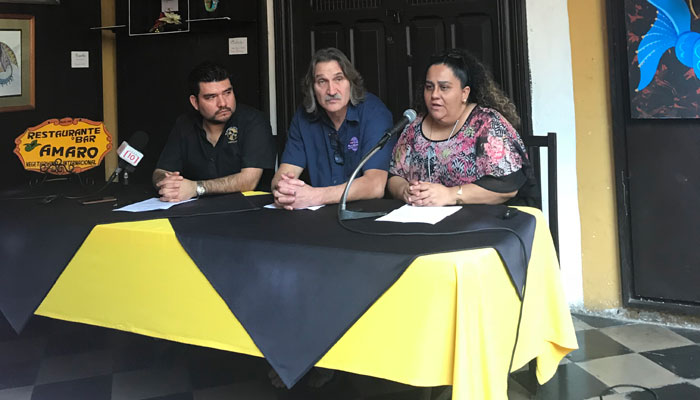After 8 years, Dr. Jeff’s spay-neuter events canceled as state funding evaporates…Read More
For nearly a decade, thousands of pet owners and animal lovers came to rely on Dr. Jeff Young’s affordable spay-neuter events, which became a cornerstone of Colorado’s efforts to reduce stray populations and support low-income families. Now, after eight years of consistency, compassion, and community service, the program has been abruptly canceled following the evaporation of crucial state funding. The decision has sent shockwaves through animal welfare groups and left many pet owners scrambling for options.
Dr. Jeff Young, widely recognized from the television series Dr. Jeff: Rocky Mountain Vet, has built a reputation not just as a veterinarian but as a passionate advocate for accessible animal care. His Planned Pethood clinics have long operated on the belief that financial status should never prevent a pet from receiving essential treatment. The spay-neuter events, in particular, stood as a symbol of this mission, offering hundreds of low-cost or free procedures each year.
The announcement of their cancellation highlights the fragile nature of programs dependent on state support. According to officials, budget reallocations and a reduction in animal welfare grants forced the difficult choice to cut funding streams that had sustained the events. While some legislators expressed regret, they cited pressing fiscal challenges and competing needs in other areas of public service.
For many pet owners, however, the impact is immediate and personal. Families that once lined up at mobile clinics or community centers now face veterinary bills far beyond their budgets. For households already managing economic strain, the loss is devastating. The cancellation not only puts pets at risk of uncontrolled breeding but also places more pressure on overcrowded shelters that rely on spay-neuter initiatives to stem the tide of unwanted litters.
Animal advocates warn of ripple effects that may take years to reverse. Reduced spay-neuter access often leads to exponential increases in stray cats and dogs. With shelters across Colorado already operating at near capacity, the end of Dr. Jeff’s events could accelerate a crisis of abandoned animals, rising euthanasia rates, and strained nonprofit resources.
Dr. Jeff himself expressed frustration and disappointment, noting that his team had tirelessly worked to make each event efficient, safe, and affordable. “We started this because we saw the need,” he explained in a recent interview. “For eight years, we’ve proven that proactive, preventive care saves lives—not just of animals, but of families who depend on them for companionship. Losing the funding doesn’t erase the need. It just makes it harder for us to meet it.”
Supporters point out that the events had measurable success. Over the years, tens of thousands of animals were sterilized, preventing countless litters and reducing shelter intake numbers. Communities where the events were held often reported fewer stray animal complaints and lower animal control costs. In many respects, the program functioned as both a public health initiative and a cost-saving measure.
Yet funding challenges are not new to animal welfare. Across the country, nonprofit veterinary programs have struggled to maintain operations amid shifting budgets and limited donations. In Colorado, where state support has historically been stronger, the sudden pullback marks a worrying trend. Legislators have hinted that future funding might be reconsidered, but advocates stress that delays will only worsen the long-term problem.
Meanwhile, grassroots groups are stepping in to fill the void. Some local rescues have announced smaller-scale spay-neuter drives, though they acknowledge that without state support, their reach will be limited. Pet owners are being encouraged to seek sliding-scale services at private clinics, though such options remain scarce in rural areas.
The cancellation also raises broader questions about the role of state governments in supporting animal welfare. Critics argue that cutting prevention-focused programs is shortsighted, as the eventual costs of increased shelter intakes and public health risks could outweigh short-term savings. Proponents of the decision counter that budgets are stretched thin and that difficult choices must be made.
For Dr. Jeff, the mission continues, albeit in new forms. His clinic will still offer reduced-cost procedures when possible, supported by donations and limited grants. He has called on the public to rally behind community-based animal welfare, emphasizing that small contributions from many individuals can sustain lifesaving services.
Pet owners, volunteers, and viewers of Rocky Mountain Vet have already begun mobilizing on social media, sharing stories of how Dr. Jeff’s events helped their families. Many describe the relief of being able to care for their pets without financial strain, crediting the program with keeping animals in loving homes rather than in shelters. The outpouring of support suggests that while the state may have pulled back, public demand for affordable animal care is stronger than ever.
Looking ahead, the future of large-scale spay-neuter events in Colorado remains uncertain. Without renewed funding or new sponsorships, programs of similar size may be difficult to sustain. However, advocates remain hopeful that awareness raised by the cancellation will inspire policy changes, philanthropic investment, or innovative community solutions.
As Dr. Jeff reflected on the end of this chapter, his focus remained on the animals. “At the end of the day, it’s not about politics or budgets—it’s about lives,” he said. “Every pet we spay or neuter is a step toward a healthier, kinder community. That mission doesn’t end here.”
